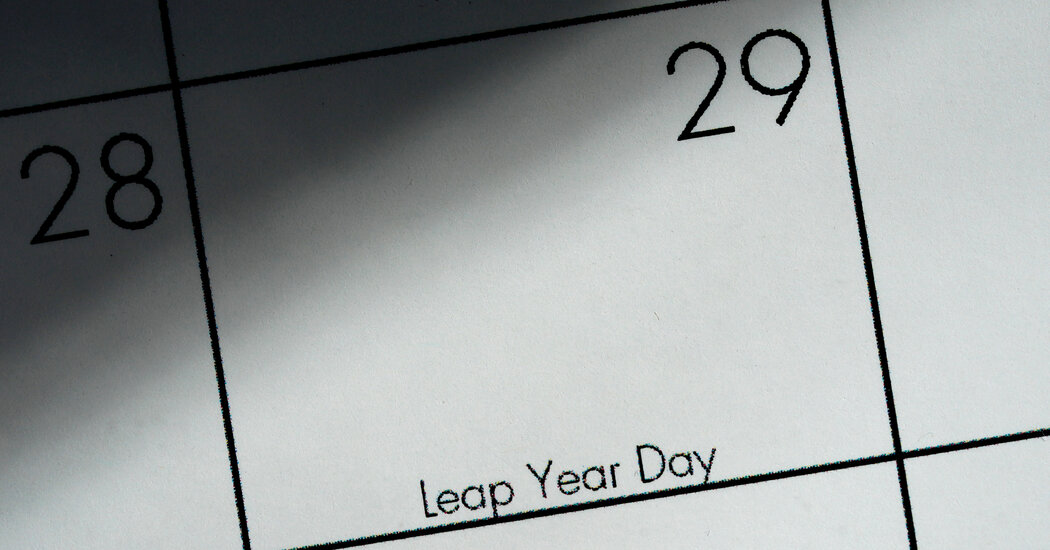
My mom tells the story the same way every year.
I was two weeks late and my heartbeat had slowed briefly, as it turns out, because I was squeezing my umbilical cord, and the obstetrician said it was time for my grand arrival. So when I was born on the evening of Feb. 29, my grandfather took partial credit.
“I knew she would do it,” he said.
He, too, was a leap day baby, more than 60 years my senior.
The calendar accounts for Earth’s imperfect rotation by adding an extra day in February every four years. It is a science developed over millenniums, dating back to the ancient Egyptians, and one that creates a birthday conundrum for an estimated 5 million people worldwide. The chances of being born on Feb. 29 are 1 in 1,461.
Approximately 362,900 Americans have a Feb. 29 birthday, according to the Social Security Administration. By comparison, about 1.6 million can say they were born on March 1.
Some might find the idea of a Feb. 29 birthday peculiar, even undesirable. We think it’s special. People who celebrate a birthday every year? We call them “annuals.”
Yes, our driver’s licenses give our real birth date. No, you’re not the first person to joke that we’re too young to drink or drive. Here’s what else to know about leap year.






